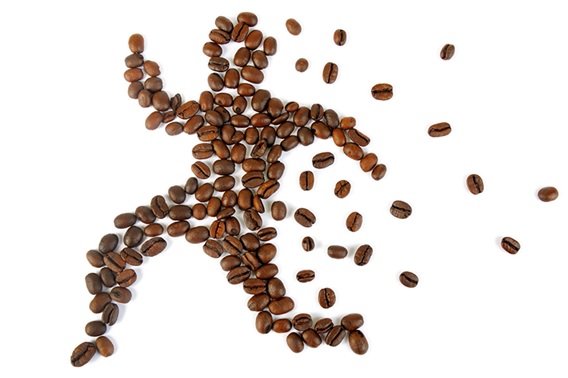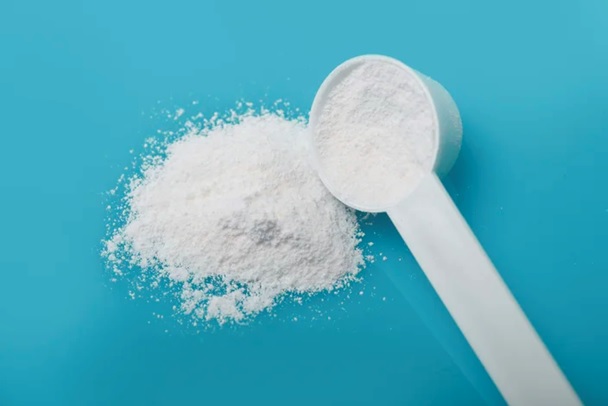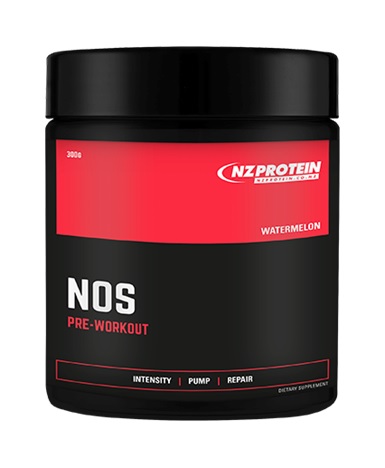
Caffeine is the most socially acceptable and frequently used psychoactive substance. I would bet good money that the person reading this has consumed caffeine at some point in their lives. Maybe they’ve even had multiple coffees already today?
Caffeine is a very interesting substance but most don’t know how it works or how much they should be having.
If you want to learn more about the benefits and appropriate uses of caffeine then read below.
What Is It?
Caffeine is a chemical which naturally occurs in a variety of plants, like coffee. It is often added to food, drinks and even medicines (because its anti-inflammatory properties can reduce headache pain).

Caffeine tends to have a stimulant effect which is why it is so frequently consumed.
Small doses can improve alertness, exercise performance and endurance. However, too much can have negative side effects like anxiety.
Caffeine is ubiquitous in modern day society. It is estimated that nearly 90% of the population consume caffeine. New Zealanders most commonly get it in the form of coffee, tea, energy drinks and chocolate.
How It Works
Caffeine is able to affect all cells in the body including your nervous system, hormones and muscles. It basically tricks your body into thinking you are wide awake.

Throughout the day, your body releases a chemical called adenosine which makes you feel tired. Caffeine blocks your adenosine receptors for a few hours, fooling your body into thinking you’re full of energy.
Caffeine is rapidly absorbed into your bloodstream. Within an hour of drinking a caffeinated beverage, you will start to feel the effects.
Your pupils will dilate and your heart rate will increase. Consuming an appropriate amount of caffeine before a physically or mentally demanding task can be a good idea.
However, the dose makes the poison. Too much caffeine can result in a number of negative side effects including headaches and insomnia.
Benefits
Most articles tend to warn you about the risks of excessive caffeine consumption. We prefer to focus on the positives. Caffeine can have tangible benefits on heart health, mental sharpness and exercise performance.
Thousands of studies have found caffeine to be more effective than placebo when it comes to running faster or performing tasks which require intense focus.
Consuming some before a run helps you go faster. Additionally, it improves alertness which is why the US special forces consume an average of 285mg per day.
While you shouldn’t consume caffeine around six hours before bed, there is no need to completely abstain if you are in good health.
The Dose Makes The Poison
Just like with any chemical, the amount you have matters. One cup of coffee can affect two people very differently.
Research suggests that your genetics may even affect your tolerance. Some people have a gene that enables them to metabolise caffeine faster than others.
This means that the recommended caffeine intake will vary depending on the individual. In order to avoid jitteriness, it is vital you consume the right amount of caffeine for you.
In addition to genetics, your prior caffeine intake and other personal factors will influence how much caffeine you should take before a workout.
Those who frequently experience anxiety or panic attacks should err on the side of caution. For the general population, up to 400mg of caffeine is considered safe.
As stated above, it is best to consume the majority of your caffeine earlier in the day. This is because caffeine stays in your system for a few hours and can disrupt your sleep if you aren’t careful.
How Much Before a Workout?
If you’re looking to improve your exercise performance, you should have 1-3mg of caffeine per kg of bodyweight prior to your workout.

This amount has been shown to have an ergogenic effect (meaning an effect that enhances energy production).
It is best to take a smaller amount aka the ‘minimum effective dose’. This is because your body can adapt to frequent caffeine consumption. There is no point consuming more than necessary and building up a tolerance.
You don’t get extra points for dry shotting three scoops of pre-workout because it won’t necessarily improve your performance.
Many supplement companies brag about their high stim pre-workout products that contain over 300mg of caffeine.
They might think they are being generous but their customers will not benefit from a superfluous amount of caffeine. Our NZProtein pre-workout contains a moderate 150mg per serve. This is equivalent to a double shot of espresso or a standard 500ml energy drink.

One scoop would be the ideal amount for a 60-120kg athlete. Those who need more or less caffeine can alter their serving size as needed.
Conclusion
The benefits of caffeine are not just in your head. Science has shown us that caffeine tangibly affects your body chemistry and can make you feel euphoric.
It is easy to take it too far and consume more than you actually need so make sure to use it wisely.
Figure out your minimum effective dose and limit your consumption to the earlier parts of the day. Enjoy all of the gains and none of the side effects.
